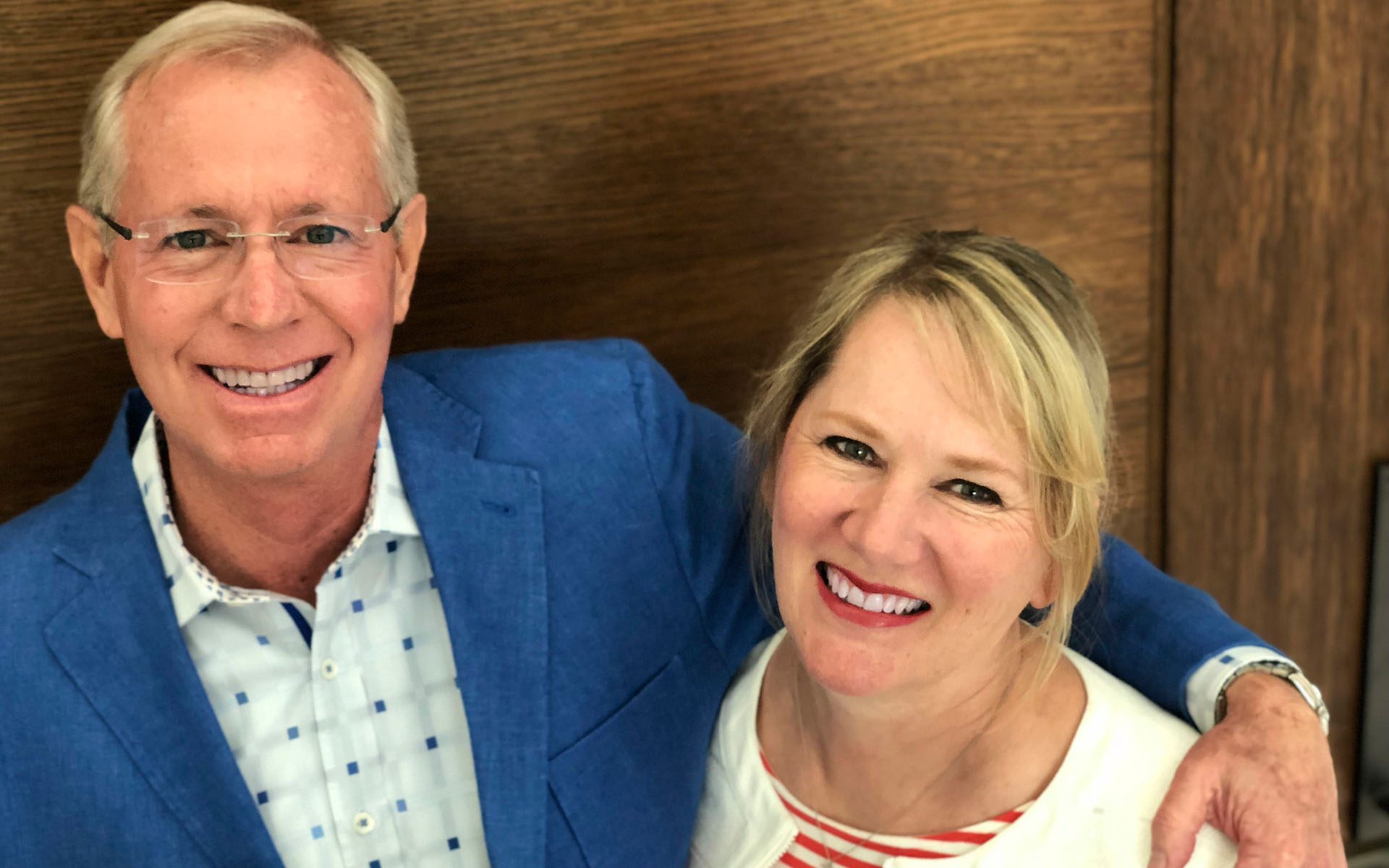A restauranteur with a Texas-sized love for Russian gives back to Languages, Literatures, and Cultures.
The son of a physician, John Welsh ’75 began his UF career in the pre-med track and worked in an immunology lab. The elder Dr. Welsh was happy. The director of the immunology department was happy. Welsh himself, however, was not. “I hated it,” he says. Three years later, the young Welsh went to his father and said, “Dad, this is just not my thing,” a sentiment he also communicated to the immunology director. “John, you’re a hard worker, you have a positive outlook, always charging, business-oriented,” the director told Welsh. “Maybe medicine isn’t for you. You should be in business.’”
John ’75 and Sydney Welsh are no strangers to 12-hour days and 7-day weeks
Welsh was relieved he did not have to follow in his father’s footsteps, but he had spent three years taking science classes. It seemed a bit late in the game to change his major. An advisor looked over his coursework and told him the only thing he was missing was a foreign language. He says. “It was the beginning of the cold war, and I thought Russian might be fun.” Heck, why not?
Welsh credits Professor E.C. Barksdale with helping him get the necessary hours to graduate. He also started working with a UF ornithologist, who needed help translating papers from a Russian colleague, and discovered that all those science classes paid o after all. Armed with a major in Russian and a minor in physical sciences, he headed to Manhattan hoping to get a job at the United Nations. He learned you need a PhD to translate at the UN and instead worked at a hotel laundry with Polish immigrants, who could understand his Russian.
He soon left NYC and went west, ending up in Dallas in 1976. He took a job at the Railhead Restaurant and, within six months, informed the owners that he would like to go into management. Railhead was purchased by Victoria Station, which gave Railhead’s owners an opportunity to pursue their own concept restaurant: Cheddar’s Casual Cafe. As an operational founder, Welsh joined Aubrey Good and Doug Rogers to open the first Cheddar’s in Arlington, Texas. Today, there are 171 Cheddar’s in the U.S. Welsh is a franchisee with two stores and started another concept restaurant: Fish Daddy’s
When he opened his first franchise in 2000, his wife, Sydney, stepped in to “help out” for 30 days. Eighteen years later, she’s still helping out. They are first to tell you that being restaurant owners takes resilience, grit, and determination.
At the first location, they worked 12-hour days for nine months straight. When they finally got one day off, half way to a Houston respite, the back office’s shelving collapsed, rendering all of the computers useless. Making a bee line back to the restaurant, Syd said, “Nice day off, honey!”
When they opened their second Cheddar’s in Lufkin, Texas, they had a constant turnover in staff. “Your No. 2 store is usually make it or break it for small companies,” says Welsh. John visited weekly, and Sydney drove five hours back and forth twice a week for four years until the management and staffing were stable. They began remodeling a building to start their first Fish Daddy’s. Careless painters left rags in cans next to a wooden column — four months of hard work and hundreds of thousands of dollars went up in flame. John and Sydney couldn’t start reconstruction on it for a year. In the long run, all three restaurants prevailed.
The Welshes required their three adult children to work in management for a year in one of their restaurants. “We wanted them to understand where the money comes from,” says Welsh. The couple believes in both self-reliance and giving people a chance. This last year, they endowed a scholarship to Languages, Literatures, and Cultures for one student a year — “an individual like me,” says Welsh, “someone in Liberal Arts and Sciences who doesn’t know exactly what they want to do yet.” He credits the college with giving him a flexible concept of life, and not just because of “the immunologist who saw a businessman in me,” Welsh says. “Working through college, combined with having a broad landscape in the humanities, helped form my personality. Your personality gets shaped those four years.”
